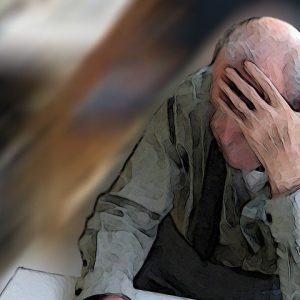Advance Health Care Directive
By Laura Calderon
What is an Health Care Directive?
A Health Care Directive is a document granting of legal rights and powers from one person, the principal to another the surrogate. In order to be valid, the document must be signed by the principal, witnessed by two individuals (neither of whom is the named surrogate), and one of whom is not a blood relative.
A surrogate is an individual who has been designated in writing by a competent person (principal) to make health care decisions for the principal in the event that the principal becomes incapacitated sometime in the future.
What happens if there is no surrogate designation?
The law identifies a proxy decision maker. A proxy is a person identified by the law to make health care decisions for an incapacitated patient when the patient had not previously designated a surrogate. In order of priority, the proxy will be a court appointed guardian, spouse, majority of adult children, parents, majority of adult siblings, other relatives, close personal friends and in some instances, a licensed clinical social worker.
What decisions can a proxy make?
Any decisions relating to health care, except that if the decision to be made involves the use of life-prolonging procedures, then a proxy must have clear and convincing evidence of the patient’s wishes regarding the use of life -prolonging procedures. Clear and convincing evidence can be found in a written “living will”, from oral evidence, from prior behavior, or a combination of these items.
Can a surrogate or proxy withhold or withdraw life support from a patient at any time?
No. Before such treatments can be withheld or withdrawn, several criteria must be met. First, the patient must be found to be unable to be able to make the treatment decision for himself or herself, and unlikely to recover capacity to be able to make the decision. Next, two physicians must document in the medical record that the patient is in a “persistent vegetative state”, “end-stage condition”, or a “terminal condition”. Without such documentation, life-prolonging treatments must continue. These thresholds do not apply to a patient who has the capacity to make his or her own decisions.”End stage condition” as a threshold was added to the statue in 1999, and means an irreversible condition that is caused by injury, disease, or illness which has resulted in progressively severe and permanent deterioration, and which, to a reasonable degree of medical probability, treatment of the condition would be ineffective.
“Persistent vegetative state” means a permanent and irreversible condition of unconsciousness in which there is:
(1) The absence of voluntary action or cognitive behavior of any kind.
(2) An inability to communicate or interact purposefully with the environment.
“Terminal condition” means a condition caused by injury, disease, or illness from which there is no reasonable medical probability of recovery and which, without treatment, can be expected to cause death.




